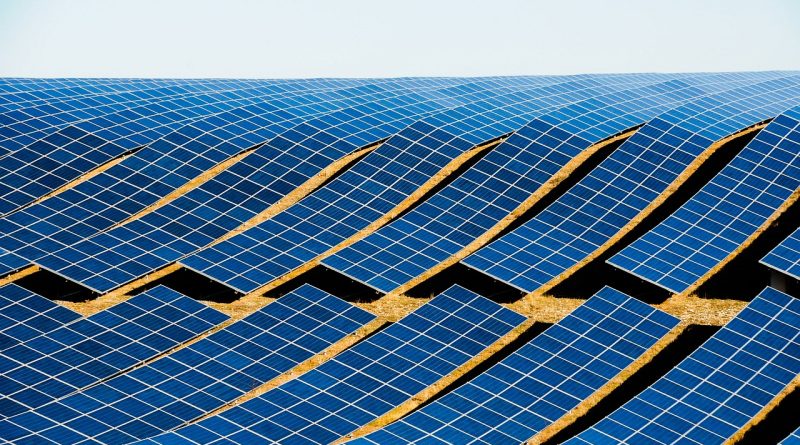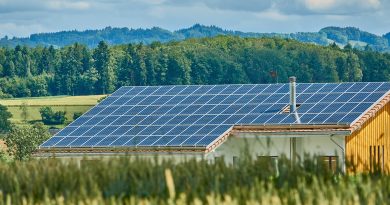Cost to Sell Solar Panels in India: Pricing Insights
India, the second-most populous country in the world, has been making significant strides in the renewable energy sector. As the demand for clean and sustainable energy solutions continues to grow, many Indians are turning towards solar power. The government’s commitment to promoting solar energy has resulted in a surge in the installation of solar panels across the country. However, prospective buyers often wonder about the cost associated with selling solar panels in India. In this blog, we will delve into the various factors that influence the cost of selling solar panels in India, providing you with a comprehensive understanding of the expenses involved.
Table of Contents
Factors Affecting the Cost of Selling Solar Panels in India
To accurately estimate the cost of selling solar panels in India, it is essential to consider several factors. Let us explore these factors in detail.
Solar Panel Type
The type of solar panel you choose has a significant impact on the overall cost of selling solar panels in India. Monocrystalline, polycrystalline, and thin-film solar panels are the three major types available in the market. Monocrystalline panels, known for their high efficiency, are the most expensive. Polycrystalline panels are a more affordable option, while thin-film panels tend to be the least pricey. However, it is important to note that the efficiency and durability of the panels should also be taken into account while considering the initial cost.
Installation Costs
The cost of installing solar panels is another crucial component to consider when estimating the expenses of selling solar panels in India. The installation cost includes the expenses associated with labor, site preparation, electrical wiring, mounting structures, and the interconnection of the system with the electrical grid. It is recommended to engage professional solar installers who possess the necessary expertise and have a track record of successful installations. While their services may come at an additional cost, it ensures a hassle-free and efficient installation process.
Solar Inverter
A solar inverter is an essential component of a solar power system, as it converts the direct current (DC) generated by the panels into alternating current (AC) for use in households or to be fed back into the grid. The cost of the solar inverter varies depending on its capacity and efficiency. Higher capacity inverters tend to be more expensive. Additionally, hybrid inverters that allow for solar power integration with a battery backup system come at a higher cost. It is important to choose an inverter that is compatible with the solar panels and meets the specific energy requirements of the household.
Battery Storage System
While it is not mandatory to have a battery storage system for every solar power installation, it is worth considering if you wish to maximize the utilization of the solar energy. Battery storage systems allow you to store excess solar energy generated during the day for use during the night or in case of power outages. The cost of battery storage systems in India depends on factors such as capacity, type, and brand. Lithium-ion batteries are generally more expensive than lead-acid batteries, but they offer higher efficiency and longer lifespan. The decision to invest in a battery storage system should be based on your energy consumption patterns and the availability of a grid connection.
Government Subsidies and Incentives
The Indian government has been proactive in promoting solar energy adoption by offering various subsidies and incentives. These schemes aim to reduce the financial burden associated with solar power installations. The government provides capital subsidies, tax benefits, and interest subsidies to promote rooftop solar installations. Additionally, net metering policies allow solar consumers to sell excess power back to the grid, thereby reducing their electricity bill. It is advisable to thoroughly research and take advantage of the relevant government schemes to lower the overall cost of selling solar panels in India.
Conclusion
Unlock pricing insights and stay ahead in the solar industry with SolarClue® as your guide to selling solar panels in India in 2024. Understand the factors influencing costs, evaluate market demand and trends, and align pricing strategies with technological advancements. SolarClue® assists in exploring different models, considering efficiency and brand reputation for optimal profitability. Stay informed about legal aspects and regulations, address competition concerns, and position your products effectively. Leverage government incentives and subsidies for a competitive edge. Optimize marketing strategies, reach target audiences, and foster collaborations within the solar community. Join our platform for shared experiences, creating a collaborative space for learning and support in navigating the dynamic landscape of selling solar panels.
Frequently Asked Questions
SolarClue® provides insights into pricing dynamics, helping users understand the market for selling solar panels in India in 2024 by detailing the factors influencing costs.
SolarClue® guides users in evaluating the current market demand and trends for solar panels, enabling sellers to set competitive prices and stay informed about the industry landscape in 2024.
SolarClue® assists sellers in understanding the role of technology advancements and innovations in shaping pricing strategies for solar panels, ensuring alignment with market expectations in 2024.
SolarClue® helps sellers explore different pricing models and strategies, considering factors such as panel efficiency, warranty, and brand reputation, to maximize profitability in 2024.
SolarClue® provides information regarding legal and regulatory aspects influencing the cost to sell solar panels in India, ensuring sellers comply with standards and regulations in 2024.
SolarClue® addresses concerns about market competition and pricing transparency, guiding sellers on positioning their products effectively and maintaining a competitive edge in 2024.
SolarClue® provides insights into the impact of government incentives, subsidies, and tax credits on the cost to sell solar panels, helping sellers leverage available financial benefits in 2024.
SolarClue® assists sellers in optimizing their marketing and sales strategies, providing guidance on reaching target audiences and effectively promoting solar panels in 2024.
SolarClue® helps sellers navigate partnerships and collaborations within the solar industry, fostering relationships that contribute to competitive pricing and market positioning in 2024.
SolarClue® fosters a community where sellers share their experiences, creating a platform for collaborative learning and support in navigating the cost dynamics of selling solar panels in India in 2024.




